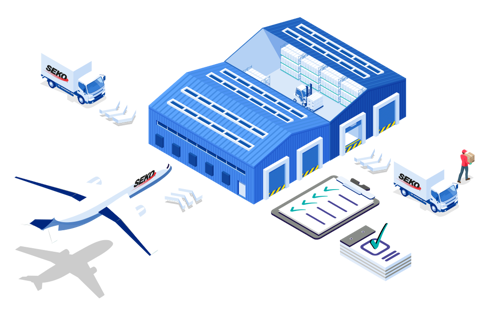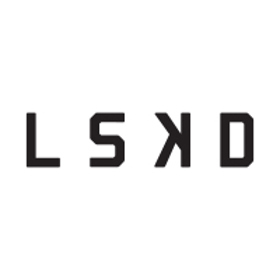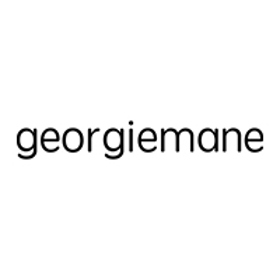A SHIPPING SOLUTION BUILT FOR ECOMMERCE
Expanding your ecommerce reach from Australia to the United States opens exciting opportunities, but navigating this high-volume trade lane requires precision. For retailers, the challenge is not just getting parcels across borders, but doing so in a way that's efficient, compliant, cost-effective, and seamless for your customer.
That's where trusted partners like SEKO can help. With tailored U.S. parcel solutions and deep expertise in cross-border shipping and U.S. compliance, we support Australian businesses to simplify the shipping process.

WHAT'S INCLUDED IN THE SEKO SOLUTION?
Incoterms
DDP (Delivered Duty Paid) is supported for a seamless customer experience
TRACKING
End-to-end tracking via our free branded tracking portal
Delivery Options
Signatures, redelivery attempts and delivery to PO Boxes are supported
Maximum Dimensions
Weight: up to 15kg Dimensions: 68 x 43 x 43 cm L+Girth: 213cm

CLEAR CUSTOMS WITH CONFIDENCE
U.S. Customs regulations are strict and non-compliance can result in delays, returned parcels, or even being banned from shipping to the U.S. This isn’t just about compliance. It’s about protecting your brand, your customer experience, and your ability to scale globally.
To ship to the U.S. successfully, retailers need to provide accurate and complete data for every parcel shipped.
At SEKO, we guide you through the key data requirements required for smooth clearance, helping retailers meet their responsibility to submit accurate and complete information for every customer order.
READY TO SCALE YOUR ECOMMERCE GLOBALLY?
Let SEKO simplify your fulfilment, delivery, and returns so you can focus on growth. Get a free logistics consultation - no commitment, just expert advice.
UNITED STATES CUSTOMS REQUIREMENTS
What was the U.S. de minimis rule?
The U.S. de minimis rule allowed shipments valued at USD800 or less to enter the U.S. duty-free under section 321 of the Tariff Act. This rule allowed retailers to ship directly to their customers in the U.S. without formal customs entry or duty payment.
Suspension of the de minimis rule for all countries of origin
On the 30th of July 2025, President Trump signed an Executive Order which suspended the de minimis exemption for all countries, effective August 29, 2025.
From this date, all goods are subject to tariffs placed on the country of origin of each item. Retailers must ensure full compliance with U.S. import regulations to avoid delays, penalties, or rejected shipments.
ESSENTIAL DATA REQUIREMENTS FOR U.S. CUSTOMS COMPLIANCE
Country of Origin
The Country of Origin (COO) of an item is the country of manufacture. This information must be provided in each shipment's consignment data.
Manufacturer's Identification
Manufacturer's Identification (MID) or the manufacturer's name and address must be provided for a formal clearance. Read about how to create the MID here.
HTS Codes
Harmonized Tariff Schedule (HTS) codes must be compliant. HTS codes are 10-digit codes used in the United States for classifying imported goods and calculating applicable customs duties. Freight will stop if HTS codes are not correct. Please read more here.
Detailed Descriptions
To ensure your parcels are cleared by U.S. Customs and Border Protection and will reach your US customers, provide clear and detailed descriptions of parcel contents for all consignments you are shipping. As of the 1st October 2024, U.S. Customs and Border Protection advised they will reject clearance of parcels with vague or ambiguous goods descriptions. For information on acceptable descriptions, please refer to the U.S. Customs and Border Protection website.
Continuous Bond
A Continuous Bond is required for any clearance into the U.S. requiring the payment of duties. Type 11 clearances only require the minimum bond (a USD50,000 bond which cost approximately USD500 per annum at the time of publishing, 4 August 2025).
ESSENTIAL READING
If you're sending freight to the United States, we advise reviewing the Reasonable Care publication from U.S. Customs and Border Protection for essential customs information including the following topics:
- Merchandise description and tariff classification
- Country of origin (COO)
- Customs regulations
Understanding these topics will help ensure smooth and compliant cross-border shipments.
FREQUENTLY ASKED QUESTIONS
The Country of Origin is the country of manufacture of the goods being shipped. This information must be provided in each shipment's consignment data. In order for the COO to be changed, a 'significant change' in the purpose of use of the product must occur. In general, if the HTS code has changed, the country of origin may also have changed.
Many retailers are shifting to DDP for a better customer experience. DDP ensures brands have more control of the shipping experience. Duties are prepaid which reduces surprise duty costs for your customer when the order reaches the United States. DDP also streamlines customs clearance leading to faster and more consistent delivery times.
JOIN LEADING BRANDS WHO TRUST SEKO
See how we've helped ecommerce businesses grow faster and smarter. Book your free consultation.







































ANY QUESTIONS, WE CAN HELP – HERE’S JUST A FEW WE RECEIVE REGULARLY
- What locations do you serve?
We empower you to scale into every core market, with 150+ offices and counting.
- Can you ship what I need to ship?
No matter how specialist or time-critical your request, we can handle it all.
- How much will it cost me?
No two shipments are the same, so inquire today for an exact quote.
Please complete the form below and we’ll be back in touch soon!

